WIBTA if I don’t give my late bf’s house to his parents?
In the wake of profound loss, emotions can blur the lines between love, legacy, and financial fairness. Our story follows a 33-year-old man whose 15-year relationship ended not just with heartbreak, but with a bitter family dispute over a modest suburban house.
The house, purchased during his partner’s courageous battle with bone cancer, became a symbol of both their shared dreams and the painful complexities of blended family loyalties. With his partner’s untimely passing, his boyfriend’s estranged family has resurfaced—only now to claim what they believe should have been theirs.
Now, caught in a legal and emotional tug-of-war, he finds himself forced to choose between preserving a tangible memory of their love or conceding to demands that feel both opportunistic and unworthy of his partner’s legacy. This case raises challenging questions about the intersection of personal loss, legal ownership, and the sometimes painful aftermath of unresolved family bonds.
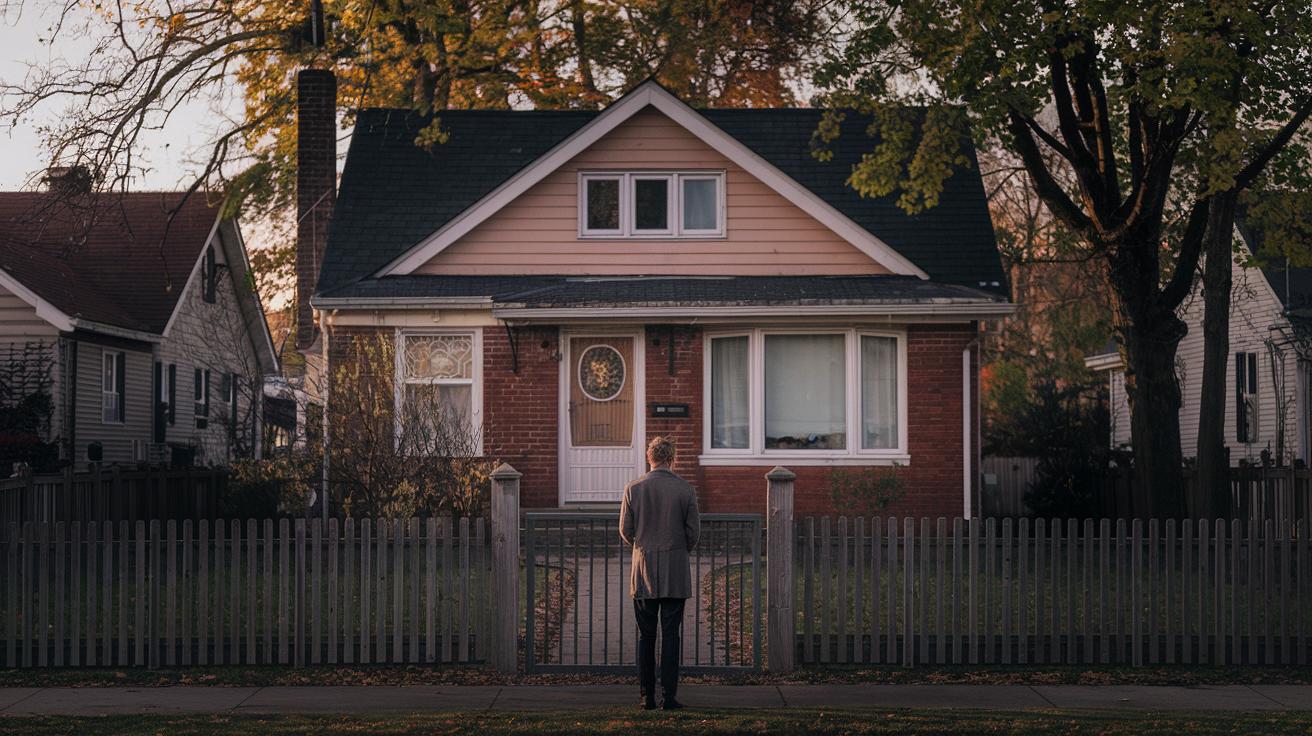
‘WIBTA if I don’t give my late bf’s house to his parents?’

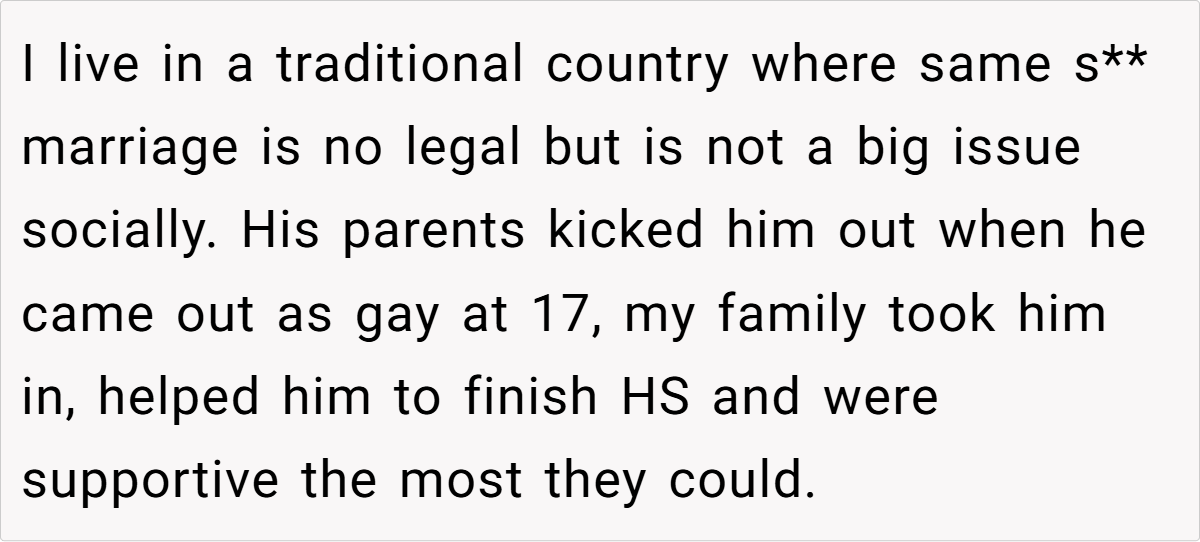

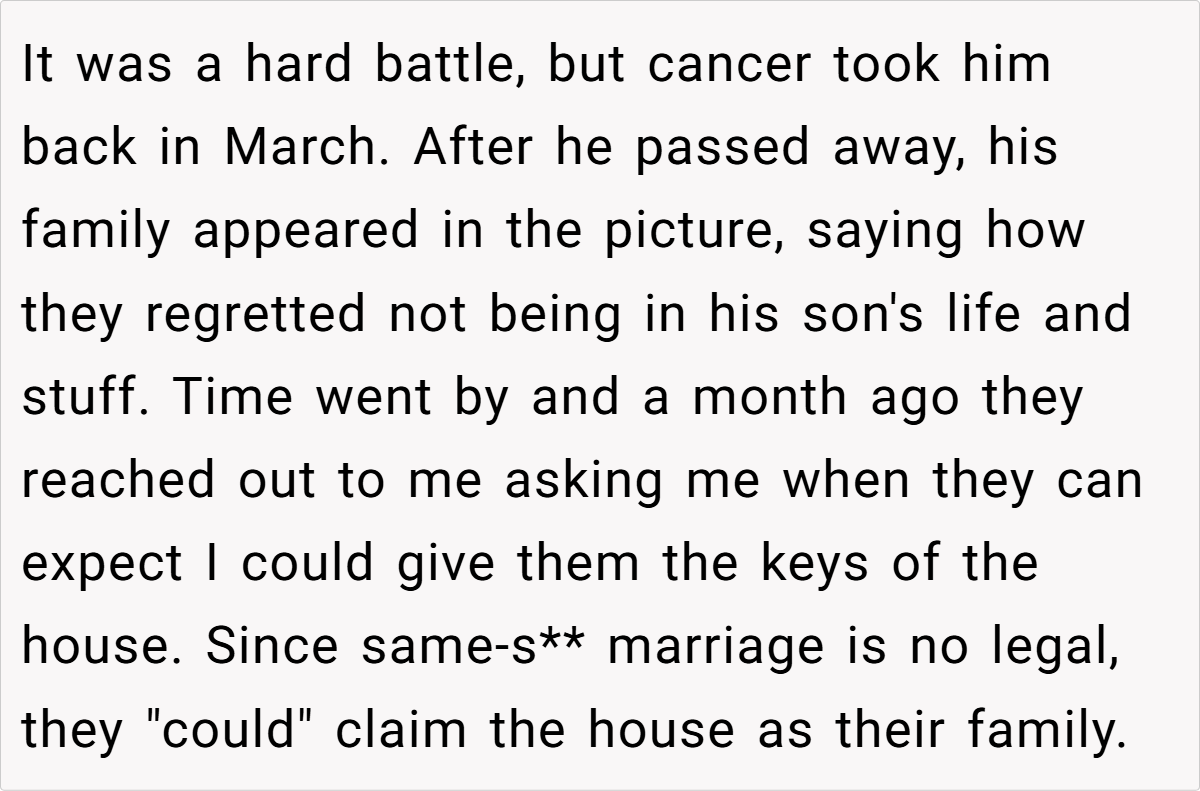
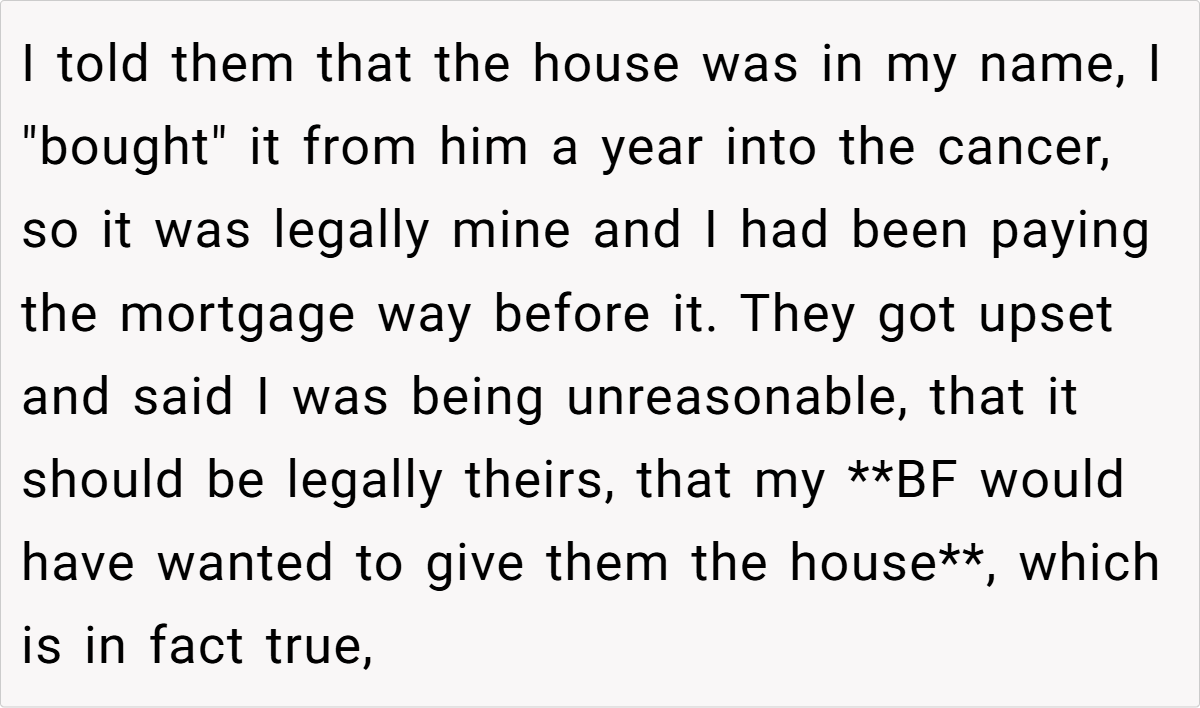






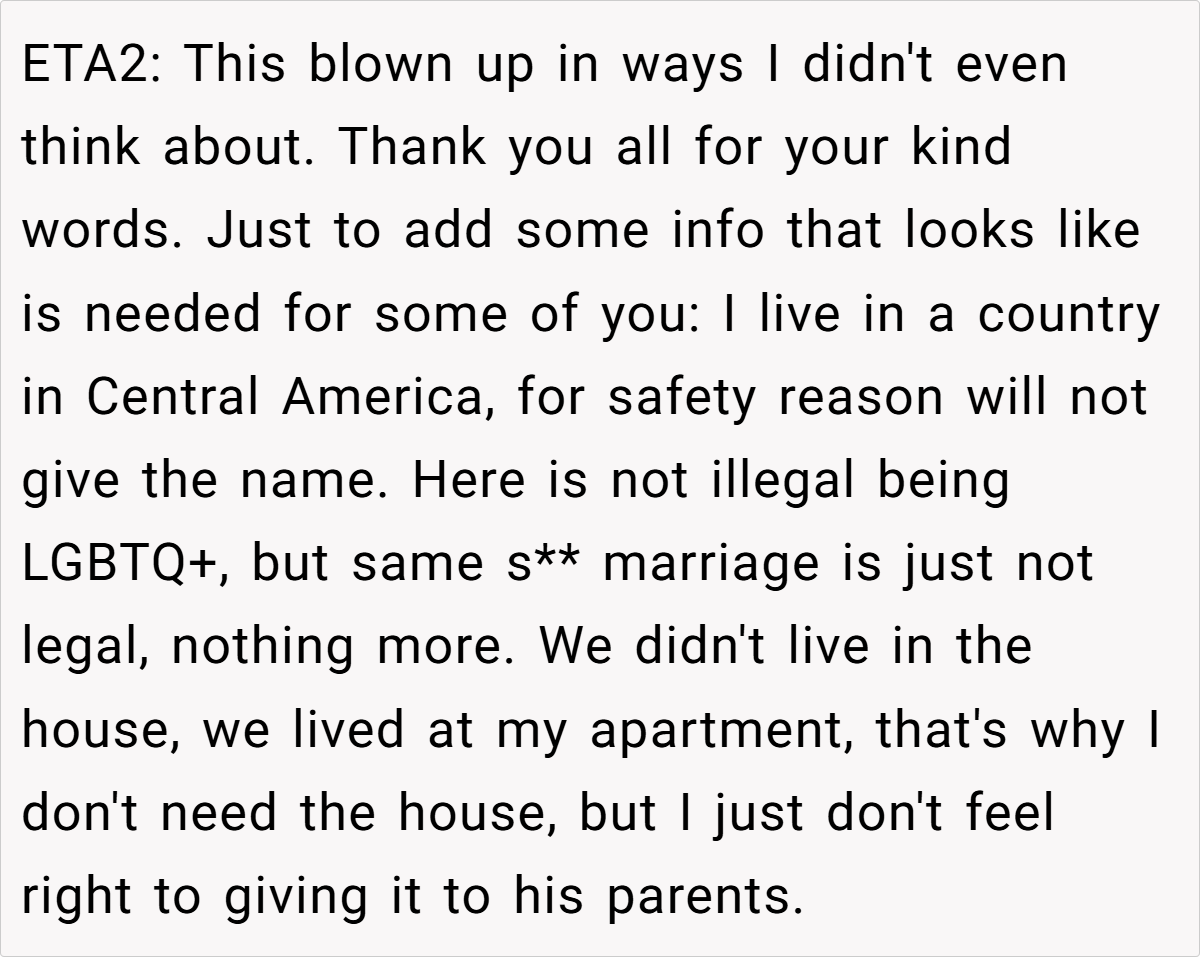


Navigating disputes over property in the midst of grief is an intricate matter, blending legal realities with deep-seated emotions. Relationship and family expert Dr. John Gottman once remarked, “The secret to a lasting relationship is not in avoiding conflict, but in managing it with care and respect”. In this case, the surviving partner’s insistence on keeping the house—purchased in his partner’s honor during a time of terminal illness—reflects not only legal ownership but also an emotional commitment to preserving cherished memories.
When financial decisions are made during a terminal illness, they are often designed to safeguard the future of the person left behind. His boyfriend’s intention to “bring them all together” by buying the house was his way of mending old wounds, yet it also served as a contingency plan should his health fail.
By transferring the house into his name during his illness, the couple aimed to protect their future together. The surviving partner’s proposal—to sell the house at the original purchase price, factoring in the mortgage he has paid over the past four years—attempts to honor both the legal and emotional aspects of their shared investment.
The complexity deepens when estranged family members suddenly reappear, offering remorseful apologies and demands for what they claim is rightfully theirs. Such actions are not uncommon in disputes involving estates where deep emotional scars run alongside unresolved familial tensions.
Experts note that while grief can cloud judgment, clear legal documentation often becomes the final arbiter. In this instance, the surviving partner holds legal title, making any further claim by his boyfriend’s family more a matter of sentiment than of law. As Dr. Gottman’s insight reminds us, managing conflict effectively sometimes means acknowledging painful truths rather than succumbing to external pressures.
Moreover, family mediator specialists suggest that, in cases like these, seeking professional guidance could help all parties express their grievances in a controlled environment. It’s essential for the surviving partner to establish boundaries that honor his partner’s memory while preventing further exploitation of his vulnerable state.
The proposal he set forth—offering the house for the price he bought it at while expecting repayment of the mortgage payments made during his partner’s illness—appears to be a fair compromise that respects both legal rights and emotional investments. Ultimately, the resolution of such disputes should ensure that the legacy of the departed is preserved without rewarding opportunistic behavior.
Here’s the comments of Reddit users:
A glance at the Reddit comments reveals a strong consensus: the surviving partner is not the asshole. Many community members applaud his decision to retain the house, emphasizing that if his boyfriend’s family truly cared, they would have supported him during his partner’s battle with cancer rather than resurfacing only after death.
Commenters argue that the house was rightfully his, legally and emotionally, and that the family’s demands appear to be more about opportunism than reconciliation. The prevailing sentiment is clear—honor your loved one’s legacy and don’t allow estranged relatives to profit from your grief.









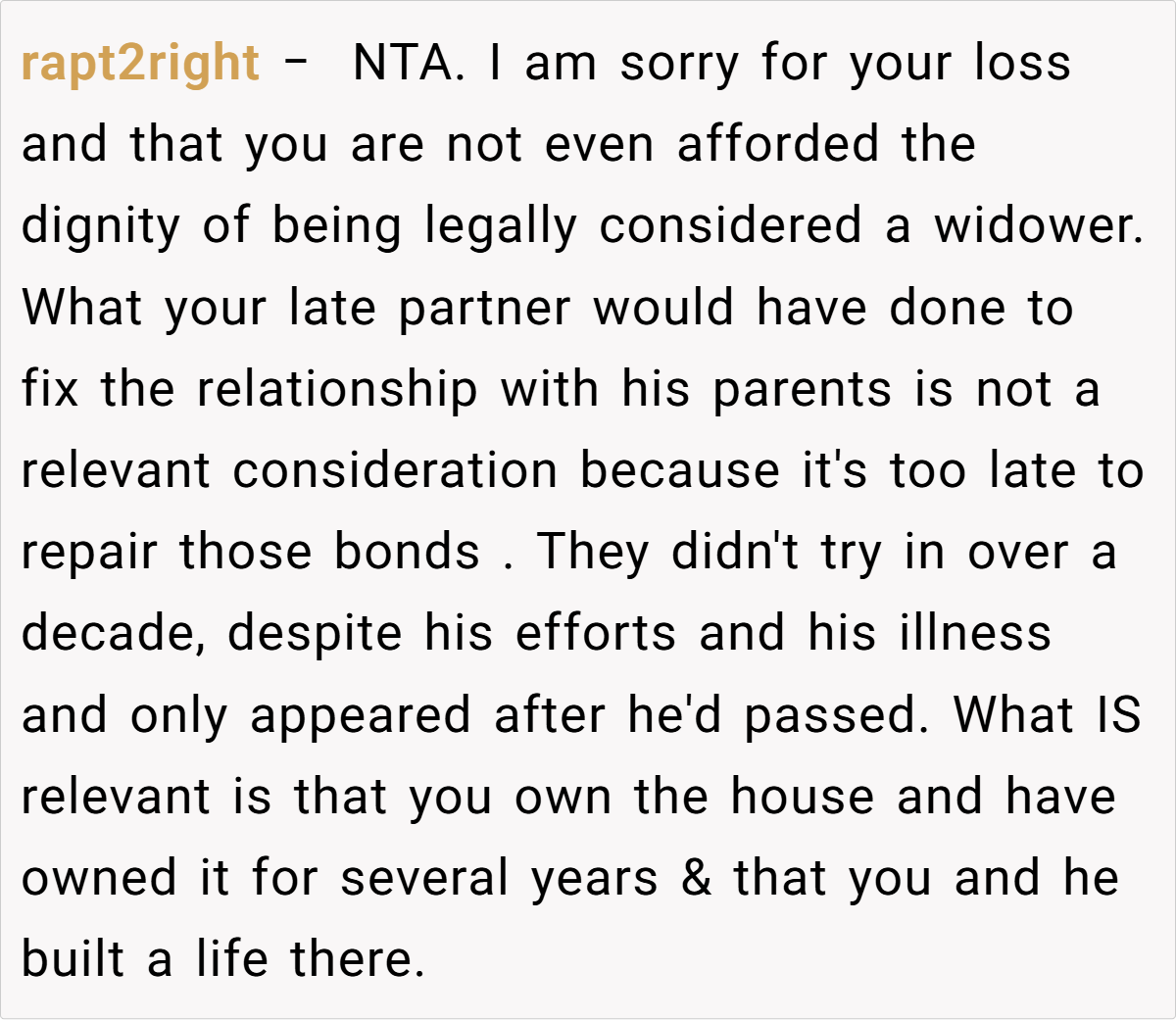



This case presents an agonizing crossroads where love, loss, and legal rights collide. While the surviving partner grapples with the weight of his boyfriend’s memory and the expectations of estranged family members, he must also protect his own future.
Would you choose to preserve a cherished symbol of love even if it means withstanding relentless external pressure, or would you compromise in hopes of healing old wounds? How do you balance sentiment with legal reality in the aftermath of loss? Share your thoughts and experiences—your perspective might help others navigating similar turbulent waters.

